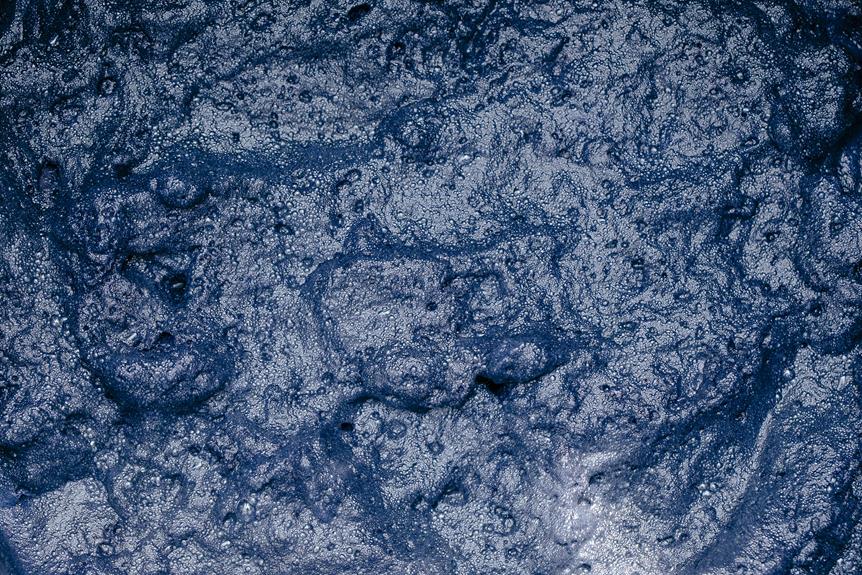Have you ever been told not to 'eat soap?' Well, there are real-world consequences for doing that – and they're no laughing matter.
In this article, we'll explore the side effects of ingesting soap, how to avoid eating it, and what to do if you accidentally do.
We'll also discuss treatment options and provide some tips on prevention.
So don't hold your breath – let's dive right in and get the facts on this slippery subject.
What Is Eating Soap
What's eating soap like?
Secretive cravings for soapy flavors can be indulged without feeling guilty. Eating soap is a surprisingly tasty experience, although it's not suitable for everyone's taste preferences. But for those who are curious about the unique flavors, it can be a liberating experience.
Soap can be consumed safely in small amounts, although it's important to be aware of any potential side effects.
What Are the Side Effects
You'll want to know the side effects before you indulge, so let's take a look at what can happen if you eat soap.
Soap ingredients can cause nausea, vomiting, and diarrhea. Depending on the ingredients, detergent alternatives may also cause irritation of the esophagus and digestive tract.
Eating soap can be harmful and uncomfortable, so it's important to avoid it and find alternative ways to make your life easier.
How to Avoid Eating Soap
To avoid eating soap, always keep it in a secure place and out of reach.
You can also use soap substitutes such as liquid hand soap, which can be beneficial to your health.
Be aware of the risks that come with consuming large amounts of soap, as it can lead to serious health issues such as vomiting, diarrhea, and even death.
If you or someone else has already ingested soap, seek medical attention immediately.
Taking preventative measures and being aware of the risks associated with consuming soap is the best way to protect your health.
Treatment for Soap Consumption
If you've ingested soap, seek medical help right away as it can cause serious side effects.
Treatment for soap consumption includes:
- Dietary Changes:
- Avoiding soap products, using soap alternatives
- Eating a balanced diet
- Home Remedies:
- Drinking lots of water
- Eating fruits and vegetables
- Medical Treatment:
- Taking medications to reduce stomach discomfort
- Seeking professional help to monitor for potential side effects and ensure safe eating.
What to Do if You Accidentally Eat Soap
If you've accidentally eaten soap, you'll need to take action to avoid any potential side effects. Cleaning habits may be to blame, so switch to natural and non-toxic soaps.
Also, avoid misusing hand sanitizer as an edible. Seek medical help if any symptoms arise, such as nausea, vomiting, or difficulty breathing.
Be mindful of your actions and create a safe environment so you don't have to worry about eating soap again!
Frequently Asked Questions
Is It Safe to Eat Soap?
No, it is not safe to eat soap. Try using soap substitutes or flavorless soaps instead for the same clean effect without the risk. Make sure to read labels carefully and find an alternative that works for you. Liberate yourself and stay safe!
Is There a Difference Between Soaps Made for Eating and Those Made for Cleaning?
You're like a detective, seeking the difference between soaps meant for eating and those for cleaning. Non-toxic soaps and dishwashing liquids are safe for consumption, but it's best to check ingredients for assurance. Eating soap can be liberating, but it's important to be mindful of the effects it may have on your body.
Are There Any Long-Term Effects of Eating Soap?
Eating soap can have risks associated with it, so it's important to seek medical advice. Long-term effects can range from mild symptoms to more severe digestive and neurological issues. Be aware of the potential risks and take preventative measures.
Are There Any Alternative Treatments for Soap Consumption?
If you're changing your taste preferences or concerned about ingredient safety, consider alternative treatments for soap consumption. Try herbal remedies, aromatherapy, or dietary changes for a holistic approach to health and wellbeing.
Are There Any Special Precautions to Take if a Child Accidentally Eats Soap?
If your child accidentally eats soap, seek medical advice immediately. There are risks associated with ingesting soap, so it's best to be safe rather than sorry. Take a metaphor as an example: a small pebble can cause a giant tidal wave of consequences. Be prepared and seek professional guidance to avoid any potential issues.
Conclusion
Eating soap not only tastes bad, it's bad for you! From nausea and diarrhea to vomiting and skin irritation, the side effects of consuming soap are no joke.
Avoid it at all costs, and if you do accidentally eat it, seek medical help right away. Make sure to keep all soaps out of reach, and always remember: one taste is enough to make you wish you'd never eaten soap in the first place!






